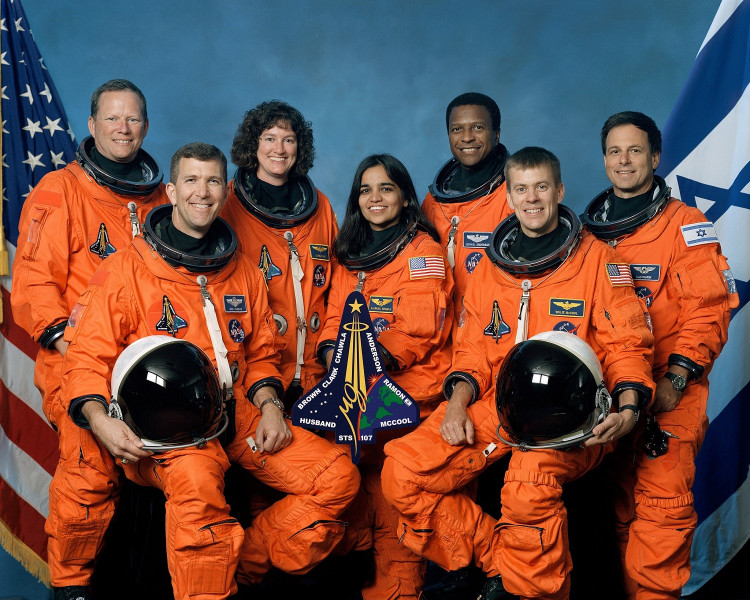A commercial cargo spacecraft destined for the International Space Station will be traveling in space under the name of a fallen NASA astronaut who was the first Indian-born woman in space.
Northrop Grumman revealed that the new Cygnus spacecraft will be called the "S.S. Kalpana Chawla," in remembrance of the mission specialist who died on board the Columbia Space Shuttle in 2003 with her six crewmates.
The S.S. Kalpana Chawla is set to launch from the Mid-Atlantic Regional Spaceport (MARS) at NASA's Wallops Flight Facility atop a Northrop Grumman Antares rocket on Sept. 29. It will arrive two days later and will be attached to the ISS.
"It is the company's tradition to name each Cygnus after an individual who has played a pivotal role in human spaceflight," Northrop Grumman said in a statement. "Chawla was selected in honor of her prominent place in history as the first woman of Indian descent to go to space."
Born in Haryana, India, Chawla immigrated to the United States in 1984 to obtain her Master's and Ph.D. degrees in Aerospace Engineering from the University of Texas and from the University of Colorado in 1988, respectively. She then started her career at NASA, doing fluid dynamics studies at the California Ames Research Center.
After becoming a naturalized U.S. citizen, Chawla applied for and became a NASA astronaut as a part of NASA's 15th trainee batch, "The Flying Escargot." In 1997, as part of the fourth United States Microgravity Payload (USMP-4), she deployed on STS-87, a 15-day shuttle flight devoted to scientific travel.
After 16 days of performing experiments onboard the Columbia space shuttle, Chawla's second spaceflight, STS-107, came to a disastrous end on 1 Feb. 2003. A small piece of foam that struck the left-wing of the orbiter during the launch created a hole that was undetected during the flight. After Columbia fell to Earth, hot plasma entered the wing, ripping it apart, and the resulting loss of control caused the aircraft to disintegrate and the crew to die.
On NG-14, the S.S. Kalpana Chawla is supplying roughly 3,630 kilograms of station freight. Research operating onboard the Cygnus involves studying a synthetic medicine that may be used to cure leukemia, a plant development analysis that will develop radishes as a blueprint for potential space crops, a portable toilet for astronauts to carry on deep-space exploration missions, and a 360-degree virtual reality camera that would be used to shoot an immersive cinematic experience throughout a space walk
The S.S. Kalpana Chawla is the second Cygnus to have been named after an STS-107 crew member. In 2016 the last commander of Columbia, Rick Husband, was similarly honored.






